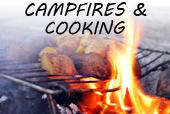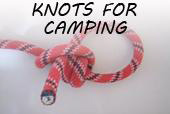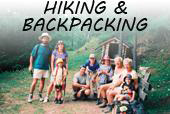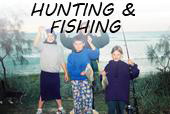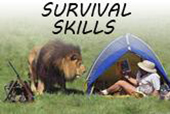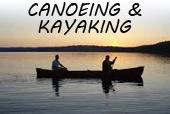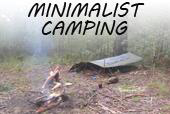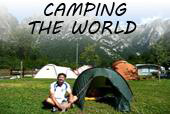Outdoor survival isn’t about skills and knowledge alone. These help, but you also need to have the will to survive. Then you need to prioritize. Here are the most important priorities, in order.
1. Attitude
One thing you’ll notice right away if you read many stories of outdoor survival, is that many people are alive who shouldn’t be. Perhaps they crash a plane and then wander into the wilderness where they can’t be easily found. Sometimes they almost freeze to death even though there are plants that could be used to shelter and cloth them. Why are they alive? A strong will to live.
This will to live is a great start. It has been responsible for survival in the most terrible conditions. But you also should develop the real belief that survival is possible. How? By thinking of your favorite stories of survival against impossible odds. By focusing always on the things you can do. Don’t ignore something that can go wrong, but don’t think about it for a minute without also deciding what you can do about it.
2. Body Temperature
Hypothermia – the loss of body heat – is the primary killer in outdoor survival situations. Staying warm means staying dry, having enough insulation, and staying out of the wind as much as is possible. Consider all your options. You can sleep during the day and travel in the cold of the night in some environments, and thus stay warmer. You can stuff dried grass between layers of clothing for more insulation, or make a fire.
In hot environments you might want to travel at night or early in the morning, and sleep in the shade during the heat of the day. You can also fashion an umbrella of any materials available, to shade yourself as you walk. Water that isn’t drinkable can still be used to cool you, by soaking clothing in it. A wet handkerchief around your neck will cool you noticeably.
3. Hydration
Water is far ahead of food as a priority. You can generally live just a few days without water in a survival situation. Once you have shelter, you should immediately locate a water supply, and find a way to purify it. If obtaining water will be a continuing problem, try to reduce your need. You can stay in the shade more, breath through your nose instead of your mouth, and use water only for drinking, not washing.
4. Safety
I like the “Man Against Wild” television show. It’s entertaining, and I even learn something now and then. But the host loves to show off his skills and daring more than his careful thinking. Don’t jump off a cliff into water or climb down a water fall to save a bit of bush-whacking (he did both in recent shows). Go around obstacles, move slow on dangerous terrain, and generally try your best to stay uninjured.
5. Get Found
Your goal in most outdoor survival situations will be to be found while you are still alive. If you have reason to think that people are looking for you, you generally want to stay where you are. Have a signal fire ready to light to help searchers find you. If you have good reason to try to get out on your own (like if nobody knows where you are), leave a note and mark your trail just in case.
6. Food
From a strictly physiological perspective, food is a low priority in most outdoor survival situations. Almost all survivors in the wilderness, whether lost hikers, boaters or plane wreck survivors, are rescued or dead from other causes long before starvation can kill them. On the other hand, having something to eat can help you maintain strength, warmth, and a sense of comfort.
Unlike water, which cannot be rationed too severely (many have died of dehydration with water still in their canteens), you can stretch out what little food you have to make it last. Virtually all mammals and birds are edible if you have the means to cook them. You can also learn to identify a few wild edible plants if you think you might someday be in an outdoor survival situation.

